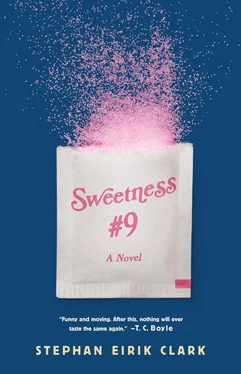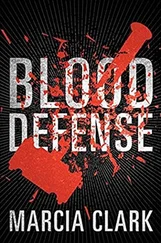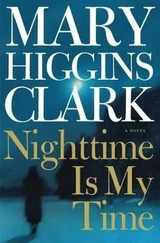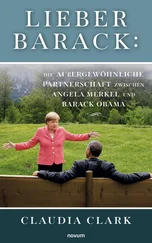As the dog days of summer arrived, I paced the halls grinning and medicated, spending more than my fair share of hours studying the dust motes twirling down through a slant of light. At one point my doctor told me that Sweetness #9 had been approved for use in dry foods and powdered beverages. He thought hearing this would be therapeutic. “The government says it’s safe, now don’t you think you can, too?”
If it wasn’t that same evening that I went into the day room and heard the conflicted cries and curses of a roomful of idiots, it has become that way in my memory. Nixon was speaking down at us from the television: “I will resign the office of the presidency effective immediately.” Amidst all the cackling and throwing of pillows, all the hee-hawing and stomping at the floor, I thought I might as well be in a roomful of monkeys, and I laughed.
It was a strangely freeing moment. Standing there staring up at the TV, I realized the truth doesn’t matter, only your relationship to it does. Because even if I wanted to do something about the rats and the monkeys, could I anymore? Who would ever ask me to testify in court? “Now, Mr. Leveraux, before we return to what you say you saw in Animal Testing, can you please tell the jury a little bit about your stay at the State Lunatic Asylum? I’m sorry, Your Honor, I stand corrected: at Greystone Park Psychiatric Hospital.”
An unreliable witness. This is what I’d become. It was another way of saying it had never happened. And wasn’t that what America promised us all anyway? A second chance? A new life? So I had swallowed my whistle on that drive away from Jupiter Park. That didn’t mean I couldn’t still lead a happy life. I only had to learn to monitor my breathing. To avoid a sudden rushing intake of air that’d agitate that whistle hidden deep down inside me and cause it to release its shrill and treasonous cry. It’s not a matter of truth and consequences, I told myself. It’s only a matter of control.
They say that when the student is ready, the teacher will appear. The same must be true for the employee and the employer. How else to explain that just a couple of weeks later a nurse was tapping me on the shoulder in the day room and telling me I had a visitor?
I HEARD THE CANE FIRST, a rhythmic tap-tap-tap that turned me round from the large picture window overlooking the basketball court. For a moment, my visitor appeared as if through a brilliant sparkly haze. Then my eyes adjusted to the dim interior light and I saw him.
He was a diminutive man of fifty-some years, dressed in green woolen pants and a jacket of Harris tweed, though summer was still in full force. His cane had a gold tip and a gold handle, matching the color of the tie that showed from beneath the green V-neck sweater he wore inside his jacket.
As he stopped before me and appraised me with a warm smile, I became conscious of my own appearance: blue pajamas and a striped terry-cloth bathrobe, my bare feet stuck into a pair of open-heel slippers. He extended his hand as I reached for the top of my head, eager to pat down the stray hairs that I knew must be there.
“Ernst Eberhardt,” he said.
We shook. “The FlavAmerica Ernst Eberhardt?”
His smile brightened. “You know of us, then?”
I certainly did. I’d sent him a résumé, twice now, and never received a response.
“I hope you don’t mind,” he said, “but an old girlfriend now living in Parsippany invited me for coffee. I thought while I was so close I should take the chance to speak with you about a job.”
In my seven or eight months at Greystone Park, I had never believed myself worthy of commitment until now. Had I sent him a résumé from here? Complete with a return address?
He smiled as if reading my mind. “I spoke with your wife,” he said. “She told me when visiting hours were.”
“Wonderful,” I said, as I glanced to the nurses’ station, wishing I had time to ask for the clothes I’d been wearing when I’d been admitted. “I only wish Betty had thought to tell me.”
Quick with a smile and a tap of his cane, he glanced past me to one of the two wicker chairs set out at an angle in front of the window. “Shall we?”
“Of course, of course!” I followed him over, then invited him to sit down.
Before he did, he reached into his coat pocket for a stiff piece of paper with an accordion fold, its text accentuated by several full-color photographs. “As you’ll see,” he said, as I inspected the brochure, “we’re a full-service flavor production house, located just across the river from downtown Battle Station. A bit of a specialty in vanilla, but that doesn’t stop us from taking on any flavor between A and Z — or apple to zucchini, as the literature says.”
I smiled, glad to see he appeared as eager as I was to imagine we were somewhere else. He glanced out the window then, saying he was “a great admirer of sport.”
I stashed the brochure in the breast pocket of my pajamas and looked where he was looking. A game was under way on the basketball court outside — a tense and spasmodic contest of two-on-one that pitted a short, fat black man and a tall schizophrenic against a man in a wheelchair who no one wanted to play with because he was such a terrible ball hog.
“But let me begin,” he said, before at last getting down to what he said was his “true reason” for coming here. “My orange is not fit for the American market. The flavor is too harsh, astringent. Americans expect an orange that is sweeter, brighter, somehow more hopeful. This is why I have always needed a Yankee Doodle Dandy at my side to calibrate my senses.”
His smile faltered here, and his blue eyes strayed to a point over my shoulder. A rail-thin man stood at the window, turning something invisible round in his hands and nibbling at it as if he were a squirrel with a nut.
I tried a little chuckle. “Fascinating, isn’t it? The human mind. Where it can take you. How it can leave you behind.”
Ernst nodded, then nodded again, then finally smiled and continued. “Yes, as I was saying, I arrived from Germany after my mouth and nose were already set. You can smile if you wish, but it is true. Your country stays with you like sand after a trip to the beach. Even when you bathe and think you’ve shaken it free”—and here his jaw hung open in a sort of listless smile—“even then it is there, hidden away from you.”
I sat in my chair with my every muscle clenched, fearing sand would come pouring out around my ankles if ever I dared stand up. Such a fraud I was! Since misspeaking in the cafeteria that day I met Betty, my accent had turned back toward my mother’s England. It hadn’t quite reached the misty land of Albion yet, but it wasn’t within sight of America anymore either. It had drifted out between the continents, off in the middle of the blustery Atlantic, near the islands that had once served as a way station for the slave trade. This was my sonic home, a slippery place leagues from the nearest Yankee Doodle Dandy.
“So if you are wondering why I have come for you,” Ernst said, “the answer is simple.” He poked his finger into the air. “I have friends at Goldstein, Olivetti, and Dark.” His voice dropped to a whisper. “We talk. I’ve learned a few things about you.”
I sank down in my chair, fearing now that this was all a cruel joke. In this nose-diving moment, it seemed entirely possible that I might have somehow been selected to serve as the plaything for various Captains of Industry, men who could unwind only by using a fellow human being as a dog might use a chew toy.
Ernst continued in a bolder voice, “Raised in a village west of London, brought to America when you were still in short pants.” He tapped the floor with his cane and shook his head, grinning widely. “Any company can go to the University of Iowa and hire a corn-fed American. I need a flavorist who has been a student of the culture since he was a young boy. And that’s you.”
Читать дальше












